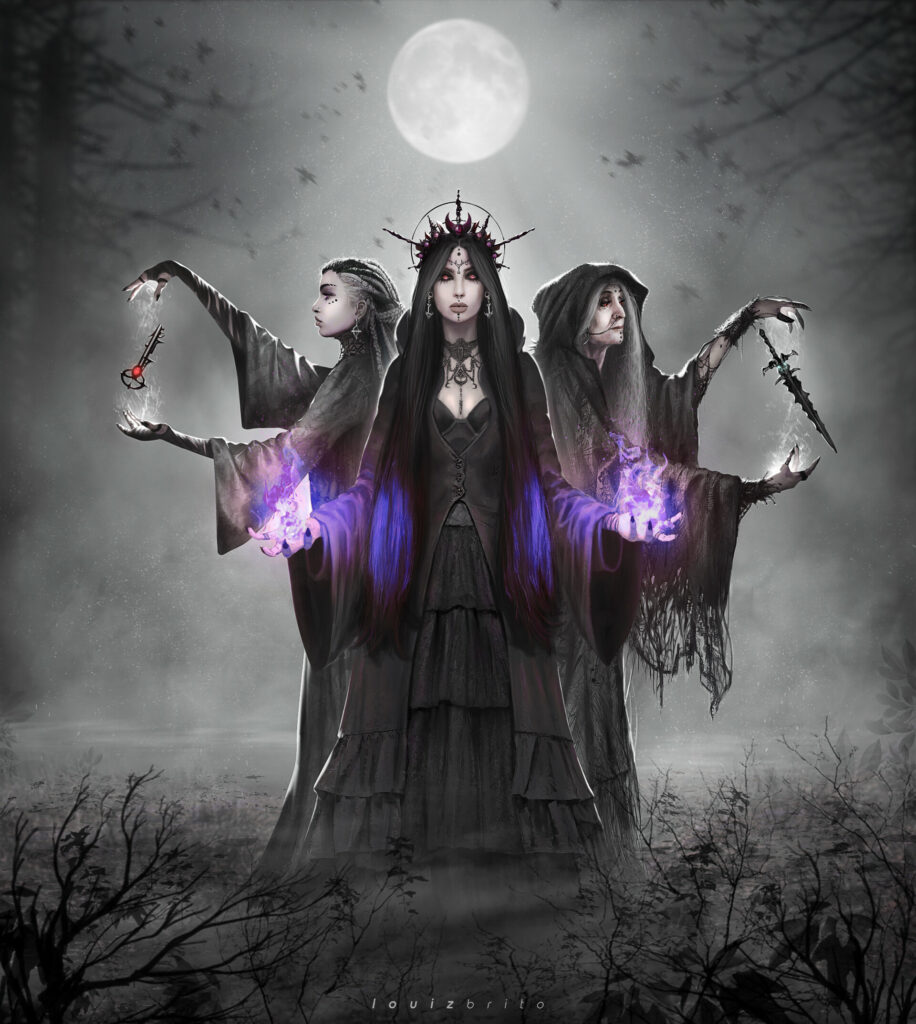10 Amazing Goddess Hecate Facts for Kids [Fun Facts]
When we think about Greek gods and mythology, the first thing that comes to mind is Zeus, God of the sky and thunder (or maybe even Percy Jackson, right?).
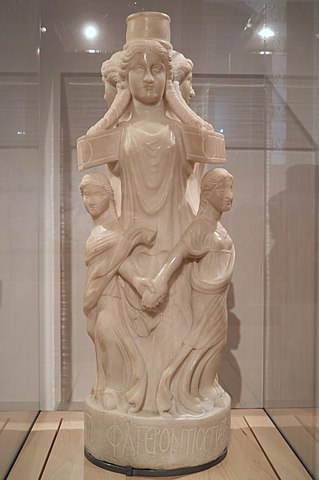
What if I told you that Hecate was around much longer than Zeus? And that her parents were the ruling Titans before Zeus and the Olympians defeated them and took over?
Well, it’s true!
Hecate may not be the most popular Greek goddess out there, but let me tell you this – she’s SUPER cool. Hecate is the goddess of the night, the moon, sorcery, and dogs. She’s also considered the guardian of crossroads, watching over all possible outcomes and dangers awaiting humans.
Let’s learn more about Hecate!
Who is Hecate in Greek mythology?
Hecate is the Greek goddess of the moon, the night, sorcery, and dogs. Since she is also believed to have witnessed the kidnapping of Persephone and led a search for her, she is also believed to be the guardian of crossroads. Because of this, she is often depicted with three heads and a torch (leading the search).
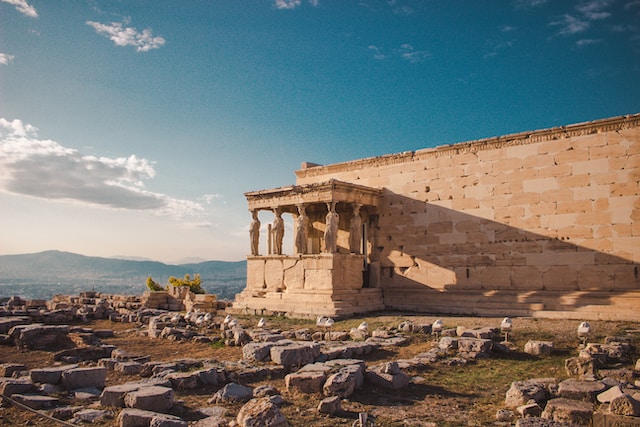
The question of her parents is a little doubtful, since different versions of the mythology says different things, but one thing is clear – she was part of Greek mythology much before Zeus and the Olympians. Many believe her parents were Phoebe and Coeus, the ruling Titans before Zeus overthrew them and sent them to Tartatus. Others say that her parents were Perses and Asteria.
She was honored and worshipped in households in Athens because they believed this would bring them blessings and protection. An evening meal, called Deipnon, was also dedicated to Hecate.
Facts about Goddess Hecate
Goddess of the night, moon, and dogs
We learnt earlier that Hecate was the goddess of the moon and the night. And that makes sense. But why dogs? Well, it’s because of the wild dogs that howl at the moon!
Grecians began associating the moon with dogs because of this phenomenon and soon, when they were forming the Greek gods’ mythos, they associated Hecate with dogs too.
Titan parents, Olympian daughter
One of the more popular theories about Hecate is that she is the daughter of the Titans Phoebe and Coeus. But, when they were defeated and overthrown by Zeus and the Olympians, Phoebe and Coeus were sent to Tartarus as punishment for being cruel gods.
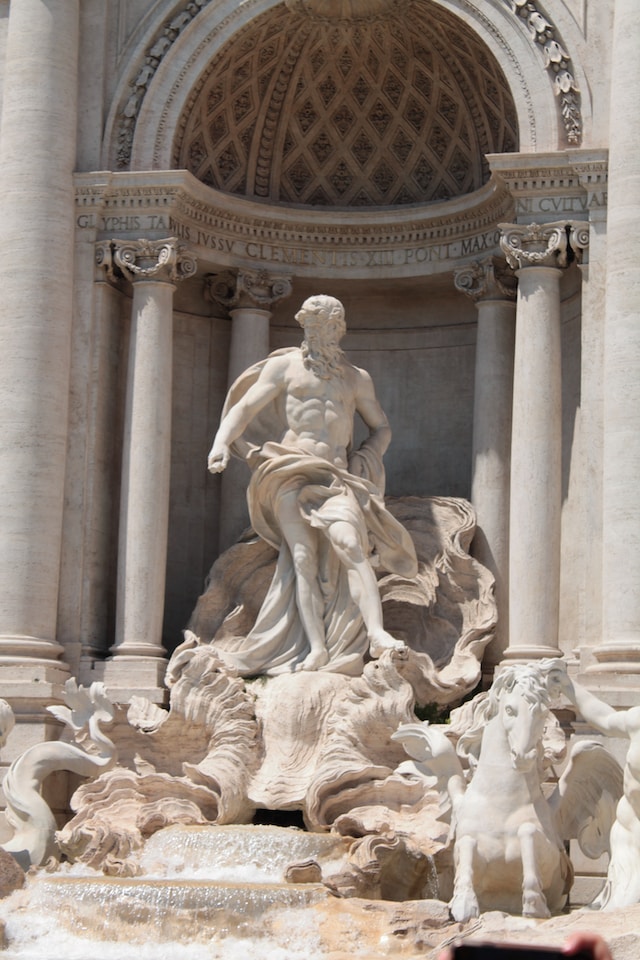
So why wasn’t Hecate sent with them?
This is because she was very friendly with the Olympian gods. So, even though she was born a Titan, a medley of the earth and the heavens, she became an Olympian after Zeus became the king of gods.
Not one, not two, but THREE heads?
If you’ve seen portraits and sculptures of Hecate, you may have noticed that she is depicted as having three heads. There are several theories as to why this is.
The first theory says that this is because she is the guardian of doorways or crossroads. So, it’s like she’s keeping watch over all the pathways her worshippers take, and even protect the faithful ones.
The second reason is because she represents the moon, and her three heads depict the three phases of the moon – new moon, crescent moon and full moon.
Goddess of sorcery and witchcraft
Apart from being the goddess of the night and the moon, Hecate is also the goddess of sorcery, witchcraft and ghosts. After her parents were banished to the underworld, she became known for sorcery and witchcraft as well.
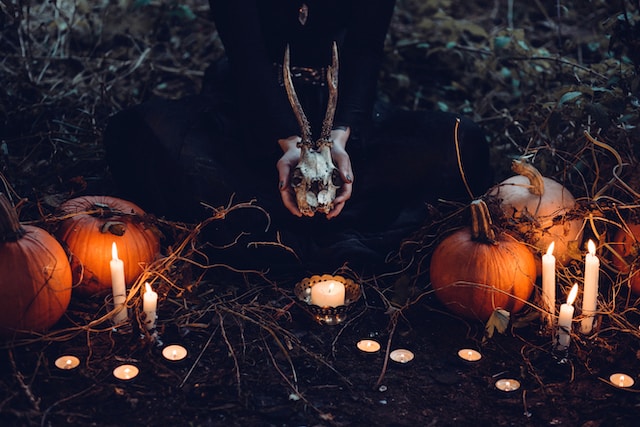
Because of this, her sculptures were placed outside of people’s homes to protect them from evil.
However, if she felt like her worshippers weren’t being faithful to her, she is believed to become vengeful and use her magic on humans.
Guardian and torchbearer
By now we know that Hecate had a lot of duties and responsibilities. In addition to being the goddess of the night, the moon, ghosts, dogs, and magic, Hecate is the guardian of pathways and a torchbearer, shining the light for people to safely pass through.
She is often seen pictured on pillars and outside the city gates to protect people from outsiders and to guide them on their journeys.
Because she is believed to have led the search for Persephone after she was kidnapped, she is often called upon while people are on journeys and difficult paths.
Hecate vs Trivia
Greek and Roman mythology are intertwined. Oftentimes, Greek gods have their counterparts in Roman mythology as well, although their powers and responsibilities may differ a little. Just like Zeus’s Roman name is Jupiter, Hecate’s is Trivia.
Trivia is the Roman Titan goddess of magic, witchcraft and ghosts. She is also the goddess of the Mist, which is a supernatural force that protects humans from seeing mythological, magical events.
Origins of Hecate
Long before Hecate was thought of as a Greek Titan, she is thought to have originated from Thrace in eastern Europe, which is around modern-day Turkey. Eventually, she became part of Greek/Roman mythology.
Hecate may not be the most popular goddess in Greek mythology, but she is definitely powerful and manages a lot of responsibility for her worshippers. She is believed to be kind and generous to her loyal followers, but cruel to those who aren’t.
FAQs
Is Hecate goddess good or bad?
Since Hecate is the guardian of crossroads, she has a neutral stance on the happenings on Earth. She does not choose just one path. So, she cannot be said to be completely good or evil. All gods can be thought of as both good and evil, because they are kind to their followers and cruel to the traitors. Therefore, it is impossible to say that she is one or the other.
What are the powers of goddess Hecate?
Hecate is the goddess of magic and witchcraft, so that is where her powers lie. Because she is also associated with the nighttime, her powers are weakest in the morning and strongest at night.
Is Hecate the most powerful goddess?
Since Hecate is technically a Titan goddess, she is one of the most powerful deities in Greek mythology. Her magical powers transcend both the heavens and the underworld. The poet Sappho even even described Hecate as the “Queen of the Night”.
Conclusion
Hecate is definitely one of the most interesting deities in the Ancient Greek mythos. She is the goddess of magic, the night, the moon, ghosts and the guardian of pathways. She juggles a lot of responsibilities.
People worshipped her and kept paintings and sculptures of her outside their homes and cities to protect them from evil. They even called upon her for journeys, especially voyages across the sea.
If you know something more about Hecate that isn’t on this list, let us know in the comments below. We’d love to learn more!

